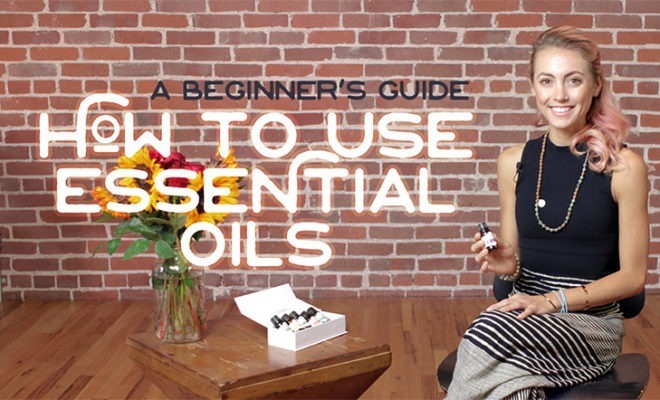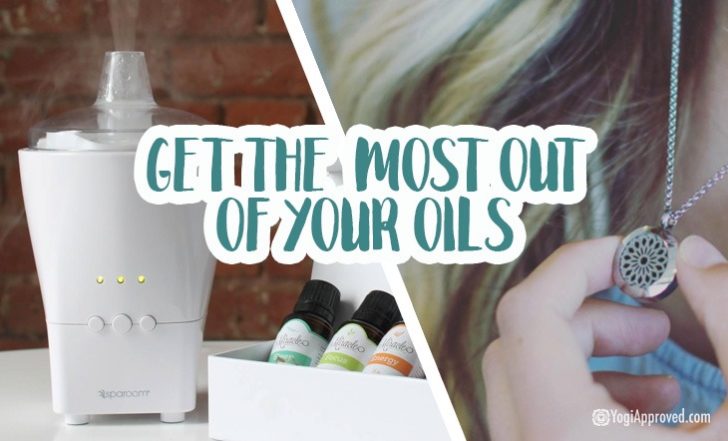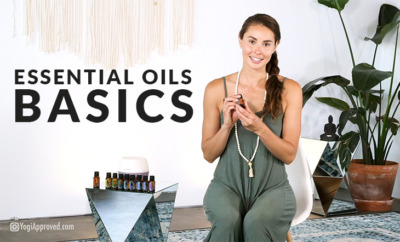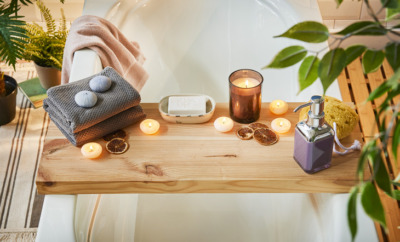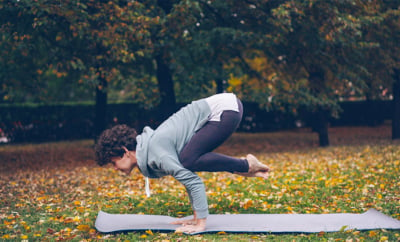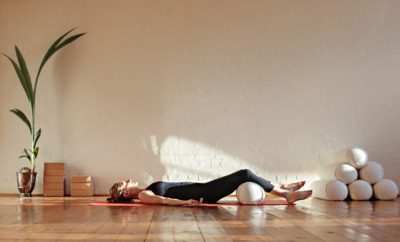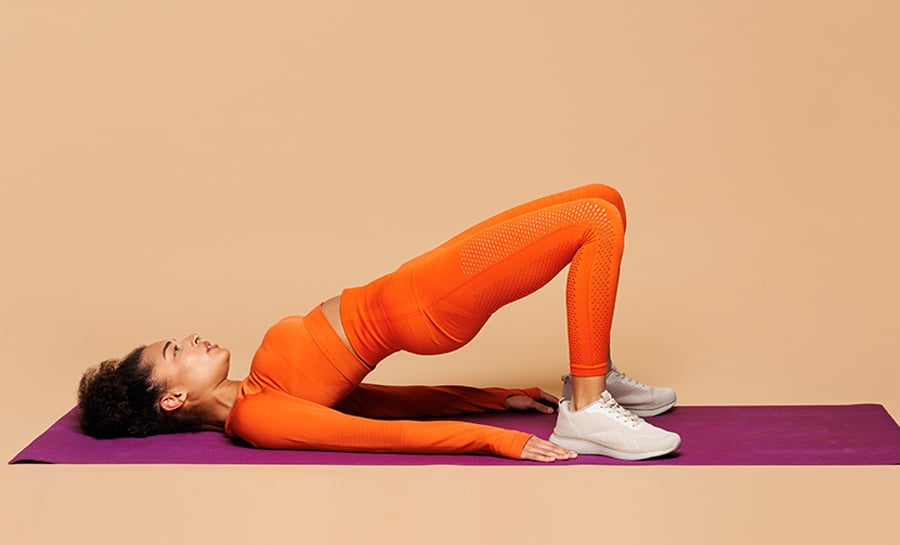Best Uses For the 7 Most Popular Essential Oils
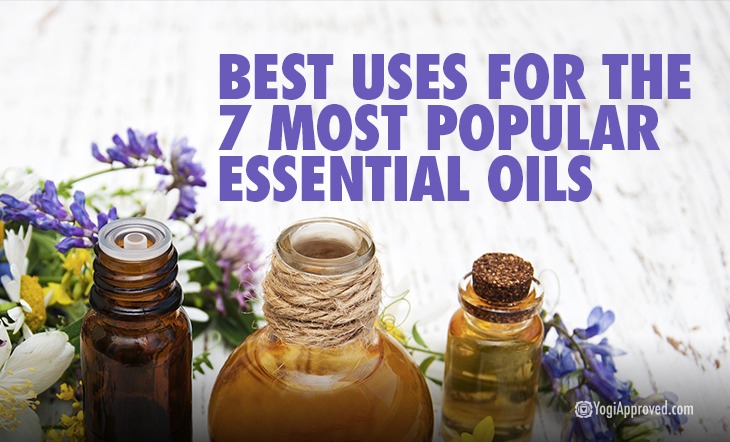
There are hundreds of different essential oils out there, and if you’re just getting started with essential oils or even if you’re somewhat familiar with them, it can be easy to get overwhelmed with the uses and possibilities. Yet as more people learn about their uses and benefits, essential oils are becoming more and more popular.
Essential oils are a great holistic option to use in the household, help relieve common ailments, and keep you healthy. If you are new to essential oils, check out Essential Oils 101 – What You Need to Know to learn more.
If you’re ready to dive deeper into essential oils and their uses, we’ve put together an accessible list of the most popular essential oils and the best ways to use them. These essential oils are well-known and well-loved for their home, health, and beauty-boosting abilities. Check out the 7 most common essential oils and their uses, and have fun incorporating them into your daily self-care routine.
Here are the 7 most common essential oils and how to use them:
1. Tea Tree Essential Oil
Tea Tree oil is one of the most popular essential oils available. Tea Tree oil is made from the Melaleuca plant’s leaves and can be easily recognized by its camphor-like scent. Because Tea Tree oil has antifungal, antibacterial, antiviral, anti-inflammatory, antiseptic, insecticide, stimulant properties and more, it literally has a thousand-and-one uses.
Ways to use this essential oil:
Many topical infections can be treated using Tea Tree oil. To create an effective blend, simply mix a few drops of tea tree oil and good carrier oil (like coconut oil or jojoba oil) and you’re ready to go. Those without sensitive skin can use it directly on the affected area to treat conditions like head lice and foot fungus.
For a great recipe using tea tree oil to clean your yoga mat, check out How to Make a DIY Yoga Mat Cleaner Spray.
2. Rosemary Essential Oil
Rosemary oil is made from the rosemary plant (but you’re smart and you knew that already) and has a fresh, strong scent that’s often used for aromatherapy. Rosemary oil is antiseptic but also has antioxidant, anti-cancer, and anti-inflammatory properties. Many turn to Rosemary oil to ease stomach ailments like indigestion, bloating and stomach cramps.
Ways to use this essential oil:
One of the most common uses of Rosemary essential oil is treating respiratory problems. It can also be used to soothe muscle pains and boost digestion. To help stimulate hair growth, rosemary essential oil can be combined with a carrier oil to make a massage mixture, which is then applied to the scalp.
3. Peppermint Essential Oil
Peppermint essential oil has a distinctive menthol scent with a sweet undertone. This natural oil has anti-inflammatory, antifungal, antimicrobial, antiseptic, antispasmodic, astringent and expectorant properties which makes it a suitable remedy for a wide range of issues.
Ways to use this essential oil:
Peppermint oil is commonly used to treat an upset stomach, indigestion and digestive issues. Peppermint oil may also be used to help relieve headaches, improve mental clarity and even help treat respiratory issues. Using Peppermint oil in aromatherapy can also help relieve depression, anxiety, stress and fatigue.
If you’re looking for more mood-boosting essential oils, check out 10 Uplifting Essential Oil Products to Boost Your Mood.
4. Lavender Essential Oil
Lavender essential oil is hailed as the best essential oil to promote sleep and is one of the most effective calming oils available. Lavender has a pleasant floral scent which appeals to most people and is a great oil to boost emotional and physical health. Lavender essential oil has antiseptic, antidepressant, antibacterial and anti-inflammatory properties, which makes it a very versatile oil.
Ways to use this essential oil:
Lavender oil is most commonly used to help treat insomnia and stress. But Lavender oil is also well-known for its ability to help relieve anxiety, soothe respiratory problems, treat small burn wounds and even heal insect bites, acne, and earaches.
For more essential oils to help reduce stress, check out Top 5 Essential Oils to Combat Stress and 5 Easy Ways to Use Them.
5. Eucalyptus Essential Oil
Eucalyptus essential oil is recognized by its refreshing, sweet, and slightly pungent aroma and is made from the leaves of the Eucalyptus tree. Eucalyptus oil has antifungal, antimicrobial, antiseptic, and anti-inflammatory properties, and also has analgesic, decongestant and deodorant properties which provides an abundance of uses to promote better health and wellness.
Ways to use this essential oil:
Eucalyptus essential oil is commonly used to help boost immune functions as well as soothe muscle pains. It can be used as an inhalant to treat respiratory problems such as asthma and sinusitis. Eucalyptus oil can also be used to help boost mental alertness and concentration.
6. Lemon Essential Oil
Lemon oil can be made from lemon peel using a cold-press process. Lemon essential oil has a refreshing aroma that’s also very soothing. Lemon oil is commonly used for its antibacterial, astringent, antiviral, sleep-inducing, antiseptic, antidepressant, carminative, and antihistamine properties.
Ways to use this essential oil:
Lemon essential oil is often used to cleanse and detox – it can soothe sore throats as well as help maintain a clean and healthy mouth. Lemon oil can also be used as a treatment to help prevent hair loss and relieve a range of skin problems such as insect bites. Finally, Lemon essential oil can be used to help you beat stress and improve your mood.
For information on how to use Lemon oil for an at home cleanse, check out 7 Steps For an At-Home Ayurvedic Cleanse.
7. Roman Chamomile Oil
With its fruity aroma, Roman Chamomile essential oil is very relaxing and calming for the mind and body. Because Chamomile has antiseptic, antidepressant, carminative, analgesic, sedative, hepatic, bactericidal, and anti-inflammatory properties, keeping some on hand will definitely be beneficial.
Ways to use this essential oil:
Roman Chamomile essential oil is commonly used as a topical treatment (either diluted or as-is) to fight conditions such as dermatitis, bee stings, dry skin, eczema, minor bruises and minor burns. Roman Chamomile can also be used with a diffuser to help promote better sleep and reduce stress.
Now that you’re familiar with these top essential oils, continue to explore the wide range of essential oils that are available to better your health and wellness. As a part of your healthy natural lifestyle, you can embrace the use of essential oils as nature’s most potent tool for physical and mental wellbeing.
This article and all included information is not intended as medical advice and does not treat or diagnose. Please consult your doctor for any health-related questions or concerns.


This Month's Letter
From the Editor
Monthly motivation and food for
thought from our founder.

